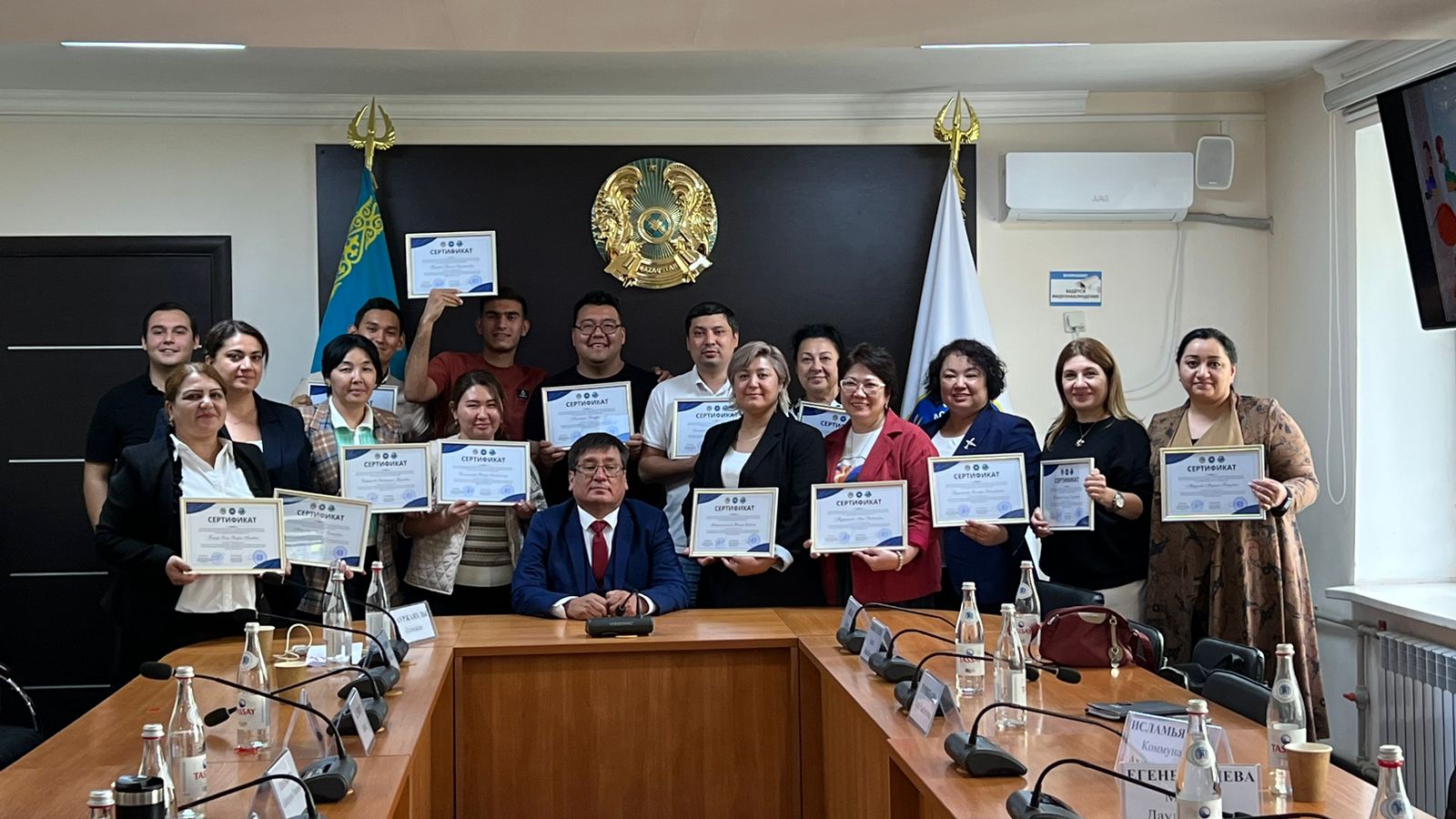Modern Kazakhstan is a multicultural, multinational and multi-religious state in which the most important component of the sustainability of civil society is the development of harmony between various ethnic groups and faiths. Extensive work is constantly being carried out in this regard.
A few days ago, a useful three-day training on the topic "Management of ethnic conflicts" was organized for members of ethnocultural associations and public structures of the APK of Almaty. The mentor was the notorious Zhandilda Zhakupov, Chairman of the Mediation Council of Almaty, head of the International Human Rights Center. The training event itself was initiated by KSU "Kogamdyk kelisim" UOR Almaty.
The seminar is designed for people whose activities are related to the resolution, prevention and forecasting of ethnic conflicts and disagreements.
The interactive learning format has shown its effectiveness. The training aroused great interest among participants of different ages. Visual demonstration of excerpts from films, interviews with famous figures, analysis of gestures, facial expressions, all this contributed to the involvement of the audience and the reinforcing effect of learning.The speaker shared impressive practical cases.So Zhandilda Zhakupov can easily identify a conflicted person in a crowd of people, even if he does not show his behavior. He also talked about interesting facts of kinesics, body language, etc. For example, former prisoners are given short steps.The expert also noted that the more surgical interventions on a person's face, the less information about it can be obtained.
-At the seminar, they discussed the skills of negotiation communication, mediation among conflicting persons in an interethnic environment and thoroughly studied some tools for proper negotiation, including active listening, rapport, and reframing. The task was to strengthen the training participants' skills of conducting a dialogue between people in different positions, to help them come to a mutually beneficial consensus. In order to properly build a negotiation strategy, it is first of all important to identify the interests of the parties, on the basis of which it is necessary to continue negotiations through constructive dialogue. It is better to take the time to negotiate than to bring it to trial. Sometimes it turns out that through conflict, a person just wanted to talk it out, let off steam. Usually people don't want to listen to each other, and the mediator becomes the "bridge". He can negotiate with each party separately and only according to the degree of agreement and readiness, the mediator seats the disputants at the same table.In the world, ethnic conflicts began to be studied in depth in the 1960s and 1970s, and only in the late 80s a certain concept of conflict between ethnic groups was formed. However, knowing the skills of ethnomediation, it is possible to resolve any disputes in the field of interethnic relations, - said Zhandilda Zhakupov, Chairman of the Mediation Council of Almaty.
In addition, the speaker stressed the importance of the socio-cultural characteristics of different peoples and the need to follow the established rules of ethnomediation.
Thanks to the training, the students mastered modern techniques for preventing and preventing ethnic conflicts, skills for conducting successful negotiations and constructive resolution of disputes in the interethnic sphere.
After the end of the seminar, the students were awarded certificates.
Asel TASHIBAYEVA
Photo provided by the press service of the KSU "Kogamdyk kelisim" Department of Public Development of the city of Almaty




